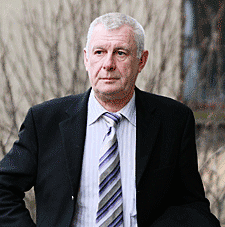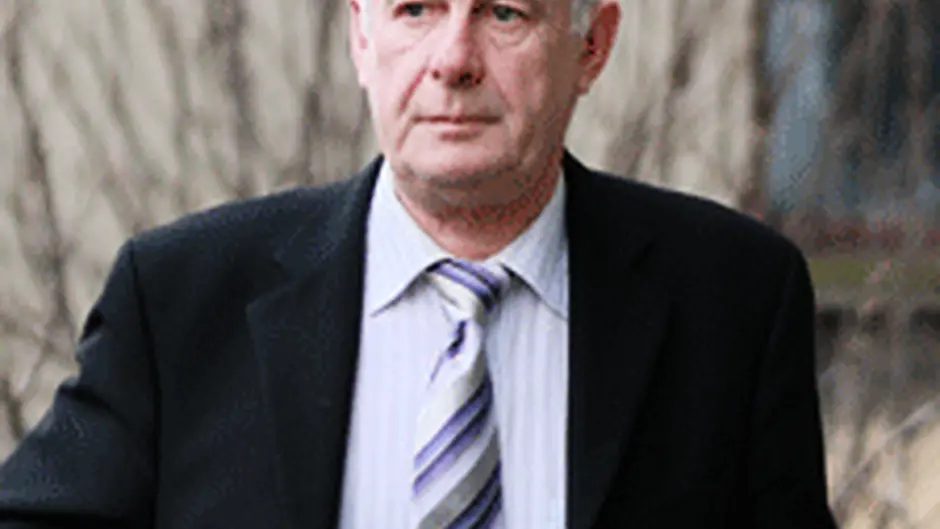A Detective Garda involved in the Sophie Toscan du Plantier murder investigation has totally refuted claims by Marie Farrell that he stripped naked in a holiday home and asked her for sex.

A DETECTIVE Garda involved in the Sophie Toscan du Plantier murder investigation has totally refuted claims by Marie Farrell that he stripped naked in a holiday home and asked her for sex.
Jim Fitzgerald, now retired, also rejected suggestions he was a general ‘Jim’ll fix it’ for Ms Farrell who had ‘fixed up’ a range of matters for her and her family.
In evidence during the civil action by journalist Ian Bailey over the investigation, Mr Fitzgerald said he was never in the holiday home where Ms Farrell alleged he was naked and did not know where it was.
If Ms Farrell had given any details of precisely when this was supposed to have happened, he was sure he could produce detailed refutation, he said. The first time he heard this allegation was in court and he had never been in such a situation as that described by Ms Farrell, he told Paul O’Hggins SC, for the State.
Asked about Ms Farrell’s claims she noticed a growth on his abdomen, he said he had suffered a lesion and told Ms Farrell’s husband Chris about that when Mr Farrell asked him had he been stabbed after noticing blood on his shirt from the lesion.
In cross-examination, Tom Creed SC, for Mr Bailey, asked Mr Fitzgerald did he consider himself the ‘most unfortunate’ of all gardai involved in the investigation because there were more allegations against him than anyone else.
Mr Fitzgerald said he believed he had been singled out for allegations after Mr Bailey wrote a ‘derogatory’ poem in 1997 about him and another garda, Liam Leahy. Mr Bailey ‘set a target and that was me and that has been the line ever since’, he said.
This was obvious from the press ‘which has been very unkind to me’.
He disagreed he had ‘fixed’ a complaint by a man of being beaten up by Ms Farrell’s husband after allegedly prowling outside their home.
The alleged prowler was told he, too, could be in trouble and the complaint was not pursued, but he would not use the word ‘fixed’.
Mr Fitzgerald was giving evidence in the High Court action by Mr Bailey against the Garda Commissioner and State who deny all his claims, including of wrongful arrest and conspiracy, over the conduct of the inevestigation into the murder of Ms Du Plantier whose body was found at Toormore, Schull, on the morning of December 23rd 1996.
Asked about the ‘tone’ of a recorded phone call between himself and Ms Farrell in April 1997, which featured a number of swear words, he said he supposed some of the language was ‘inappropriate’ that was ‘regrettable’ and he was unaware his phone was being taped.
Mr Fitzgerald also said he never went to the home of Claire Wilkinson, who had alleged she was put under pressure by gardai to make a statement adverse to Mr Bailey.
He was also not involved in alleged leering at daughters of Jules Thomas, Mr Bailey’s partner. It was also ‘totally untrue’ that he had suggested Ms Farrell should give the name of a dead person as her companion on the night of December 22/23rd 1996, he said.
He said he never gave cannabis to a man in the hope of getting Ian Bailey to ‘loosen his tongue’ in relation to the murder.
Mr Fitzgerald said another garda gave Martin Graham small amounts of cash and clothes on occasions after Mr Graham told gardai he had was prepared to assist gardai because he had concerns about things Mr Bailey said in a friend’s house when he was released after his first arrest.
Mr Fitzgerald said he himself also gave Mr Graham some small cash sums.
There was a special ‘secret service’ fund availabe to chief superintendents for small monetary expenses of informants, he said.
Mr Graham at one point said he would need €4,000 to get certain information but that was rejected ‘out of hand’ by superiors.
Mr Graham also gave gardai a prescription bottle sticker with Mr Bailey’s name on it and, when told that was no use, Mr Graham replied: ‘You know what use you can make of it’, he said. He believed Mr Graham was inferring gardai should put the paper somewhere, such as the murder scene.
Mr Graham did not give much information adverse to Mr Bailey, but separately provided useful information that lead to drug seizures, the garda added.
He learned about May 1997 that Mr Graham was recording conversations with gardai and was suspicious Mr Graham was trying to set gardai up.
Having been advised by a superior to protect himself, he arranged in May 1997 for recordings to be made of conversations with Mr Graham in the garda car.
He was suspicious Mr Graham was trying to compromise gardai by having a substance in his possession and arranged in June 1997 to meet him and have two other detectives nearby who would search him.
He denied further claims by Ms Farrell she was asked at Ballydehob garda stationb on February 14th 1997 to sign blank pages of a statement to be filled in later by gardai.
He said the first reference he heard to an allegation a ‘blank’ statement was given to Ms Farrell was from Mr Bailey himself on the Vincent Browne show on TV3 in 2012, he added. He was also unaware for some 18 years that some calls involving him were recorded in Bandon garda station in 1997.
Sgt Frank Looney, now retired, said he filled in a questionnaire based on conversations with Ms Farrell in January 1997 which included references to her seeing a man outside her shop on the afternoon of December 21st 1996 around the same time Ms du Plantier was in the shop.
Ms Farrell also said she saw the same man the following morning on the road near Schull and had seen him again that very day, January 17th 1997. Mr Looney said he then went with her to stand outside another shop in Schull and when a man came out, Ms Farrell said ‘That’s him’. Another Garda identified the man coming out of the shop as Ian Bailey, he said.
Michael McCarthy, a retired garda, said he identified to Sgt Looney on January 17th 1997 a man coming out of a shop in Schull as Ian Bailey.
Mr McCarthy also said he regarded injuries shown to him by Jules Thomas, Mr Bailey’s partner, in June 1996 as one of the worst assaults he had ever seen. She had not proceeded with a complaint.
When Mr Creed suggested it was perfectly obvious the witness did not particularly like Mr Bailey and had come to court with a ‘plan’ and ‘extreme prejudice’, Mr McCarthy said he treated everyone the same.
Garda Martin Malone, now retired but stationed in Schull in 1996/1997, said he had not noticed scratches on Mr Bailey’s face and hands when he saw him at the murder scene about 2.20pm that day.
Earlier, Amanda Reid, known as Irune Reid, said she contacted gardai after her teenage son Malachi told her on February 5th 1997 he had not told the gardai everything about getting a lift with Mr Bailey the previous evening. She considered what Malachi then told her was so serious she contacted the gardai.
The jury was previously told Malachi, aged 14 in 1997, made a statement saying Mr Bailey was drunk when he gave him a lift on February 4th 1997 and told him: ‘I went up there with a rock one night and bashed her fucking brains in’ and also said he did it to get a story for the newspapers.
Mr Bailey has denied he was drunk when he gave the boy a lift and said what he had told the boy was that ‘they are saying’ that he, Mr Bailey, had done those things.
Billy O’Regan said he was working in the shop in Lowertown creamery near Schull on the morning of Christmas Eve 1996 when Mr Bailey came in with a bow saw in his hand and went straight to the newspaper stand where he looked at The Examiner newspaper before putting it back.
Mr O’Regan said Mr Bailey asked to have the blade on his saw changed because it was cutting crooked and would return to collect it later. Mr Bailey had scratches on his hands which might be got from cutting or clearing briars, he said.
After Mr Bailey left, Mr O’Regan said he examined the saw blade which seemed good but he replaced it. Mr Bailey returned later and got briquettes, a bottle of bleach and feed for fowl.
Under cross-examination, he said the blade was good but “the customer is always right”. The blade was so good he put it back on the shelf and resold it and got no complaints about that, he agreed. Mr Creed said that indicated how much Mr Bailey knew about saws.
The case continues.








